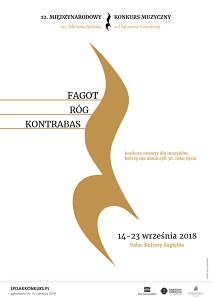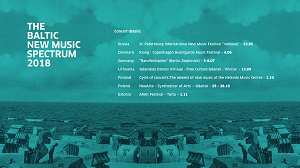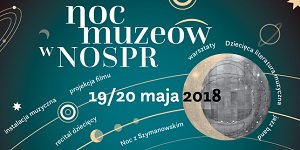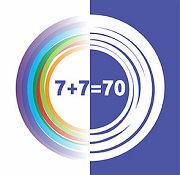
On May 19, 2018 at 7.00 pm the Witold Lutosławski Concert Studio of Polish Radio will host a concert of the Sinfonia Iuventus Orchestra, who will perform symphonic masterpieces of Joseph Haydn and Franz Schubert under the baton of Michail Jurowski.
A wonderful summing-up of Haydn’s symphonic legacy are two cycles of six pieces each, called The London Symphonies (no. 93-104). Their origins are connected with the only distant journeys Haydn made in his long life. After the death of his long-time employer, Prince Miklós Esterházy in 1790, Haydn accepted the invitation of Johann Peter Salomon, an excellent German violinist, who was at the time active as an impresario in London. Later that year, in winter, he set out for England to perform as a celebrity during subscription concerts organised by Salomon. He thanked Londoners for his exceptionally warm welcome with a monumental cycle of epochal symphonic masterpieces – twelve symphonies in two groups from each tour (the second one took place in 1794-95). Some of them contain the musical “extravagances” and “jokes” for which Haydn was famous. In the second of the London Symphonies, Symphony No. 94, one of the most famous and funny distinguishing features appears: a sudden, unexpected chord played fortissimo after the delicate piano theme of the second movement, which develops earlier. Thus, the moniker given to the work in English-speaking countries: “Surprise”. It is also called – after German commentators – “the drumstroke” (“mit dem Paukenschlag”), since the instrument, normally silent in lyrical episodes, unexpectedly joins in here. Haydn later denied that this effect was calculated to wake up those listeners whom the delicate music of this part lulled into a snooze…
Schubert’s Symphony in C major, known as “The Great” (the author’s own term to distinguish it from the shorter Symphony No. 6 in the same key; later, it was also interpreted as an expression of admiration for a brilliant work) was composed in 1825, during a happy summer spent outside of Vienna. The two-month stay at the home of the musically-inclined and hospitable merchant, Ferdinand Traweger, in Gmunden, Upper Austria, was particularly pleasant. The carefree atmosphere of the holiday, filled with family music playing, feasting and mountain hikes, inspired Schubert to compose the largest land most original of his orchestral works. On the basis of the date written in the autograph, it was long thought that the work was composed in the last months of Schubert’s life in 1828, and that its dominant cheerful mood was an expression of “escapism” in the face of tragic experiences of poverty and illness. Today, however, it is accepted that the basic foundation of the work was created in the summer of 1825. Perhaps in 1828, Schubert made his last corrections, hoping for the work to be performed or published, hence the date. However, he did not live to see the symphony presented. Like most others, it would remain completely unknown for the next decade. Luckily, Franz’s brother Ferdinand showed the work to Robert Schumann who was visiting Vienna, and thanks to his efforts, it was performed in 1839 in Lepzig’s Gewandhaus, conducted by Mendelssohn. A year later, after the score was published, Schumann devoted a famous, insightful and enthusiastic article to it in Neue Zeitschrift für Musik. In particular, one phrase is remembered: “…and its heavenly length, like a novel in four volumes by Jean Paul…” This comment, made in good faith by Schumann, was sometimes received too literally. The audience did not immediately accept the length of the work, which went beyond those they were accustomed to, while conductors often shortened it, omitting repeating elements. Symphony in C major fills the conventional diagram with completely new content: remaining within a typical four-movement cycle, Schubert revels in the beauty of his own melodies (in the finale, he also discreetly cites Beethoven’s “Ode to Joy”, paying his idol a beautiful tribute), moving away from the drama characteristic of previous symphonics, towards orchestral lyricism. It was appreciated late and with time, it became one of the most beloved works of its creator, so unappreciated during his lifetime.
Media patronage: Polish Music Information Centre POLMIC.
More intormation at: http://sinfoniaiuventus.pl
 W dniach 9–13 maja 2018 we włoskiej Filadelfii odbywał się już po raz dziesiąty Międzynarodowy Konkurs Muzyki Klasycznej, w którym wzięli udział młodzi muzycy z niemal trzydziestu krajów świata.
W dniach 9–13 maja 2018 we włoskiej Filadelfii odbywał się już po raz dziesiąty Międzynarodowy Konkurs Muzyki Klasycznej, w którym wzięli udział młodzi muzycy z niemal trzydziestu krajów świata.































